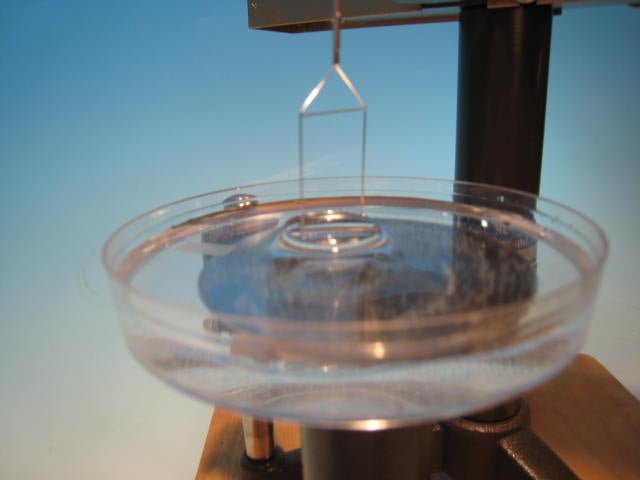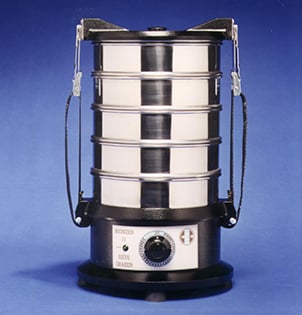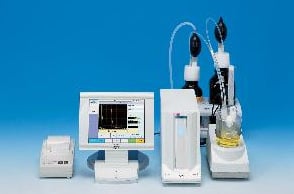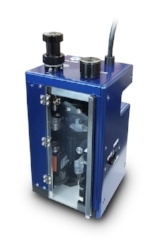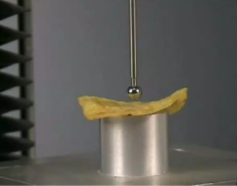I was musing, the other day on the designs of two ring tensiometers. One of them is called an interfacial tensiometer
Understanding Surface and Interfacial Tension in Liquids
Posted by Cho Jang on Apr 5, 2024 6:10:28 PM
Topics: Surface Tension Measurement, Surface Tension, interfacial tension, interfacial surface tension, surface Tension Testing, du Nouy Ring Method, du Nouy tensiometer, Liquid Properties
Topics: Sieve Shakers, "Ask Art", Sonic Sifter, Agglomeration, Particle Size Analysis, Sieve Testing, Sieves, Sieving Process, Sieve Analysis, Quiet sieve shakers, sieve shaker
Coulometric/ Volumetric Karl Fischer Titration -- Which Should I Use?
Posted by Hank Levi on Feb 24, 2024 2:17:08 PM
As usual when we pose a question, like:
Should you use Coulometric or Volumetric Karl Fischer to measure moisture in your product?
We often get a the reaction, “So Who Cares?” We'll try to answer both questions.
Topics: Coulometric Karl Fischer, Volumetric Karl Fischer, Moisture Analysis, Moisture Testing, Karl Fischer, Karl Fischer Titration
Visitors to our web pages often arrive with the question, “What is the Function of a Sieve Shaker?”
Topics: Sieve Shakers, "Ask Art", Sonic Sifter, Agglomeration, Particle Size Analysis, Sieve Testing, Sieves, Sieving Process, Sieve Analysis, Quiet sieve shakers, sieve shaker
When people are looking for a way to measure small amounts of moisture, we often recommend the Karl Fischer method.
What is Karl Fischer?
Read MoreTopics: Coulometric Karl Fischer, Karl Fischer, Karl Fischer Titration
What is the Difference Between Dynamic and Kinematic Viscosity?
Posted by Hank Levi on Jan 26, 2024 1:55:33 PM
At first glance, viscosity seems like a fairly simple concept. It helps describe how thick a product is, or how well it flows. That's all, right?
In reality, there are several different terms that come under the heading of viscosity. These terms are derived from how the viscosity is measured. When people talk about viscosity, they are talking about one of two things: kinematic viscosity or dynamic viscosity.
It's not easy to find a lot of information on the differences between dynamic and kinematic viscosity. This is my attempt to bring clarity to these two principal concepts.
Read MoreTopics: Newtonian Fluid, Viscometers, Viscosity, Consistency, Kinematic Viscosity, Dynamic Viscosity, rotational viscometer, Liquid Properties, density, Texture Analysis, gel time
Topics: density
A Portable Contact Angle Meter that Provides Convenience and Accuracy
Posted by Anne Foster on Nov 14, 2023 2:43:58 PM
Topics: contact angle meter
Karl Fischer vs. Loss-On Drying - Which Method is the Best?
Posted by Amanda Ranowsky on Oct 17, 2023 8:10:18 PM
Karl Fischer Titration and Loss-on Drying (LOD) are both methods for determining moisture content in a product.
That’s where the similarities end, though. In this article, I will explain the difference between Karl Fischer Titration and Loss-on Drying, and offer some suggestions to help you choose the right method for your application.
Topics: Moisture Analysis, Moisture Testing, Karl Fischer, Karl Fischer Titration, Loss-On-Drying
Topics: Texture Analysis

